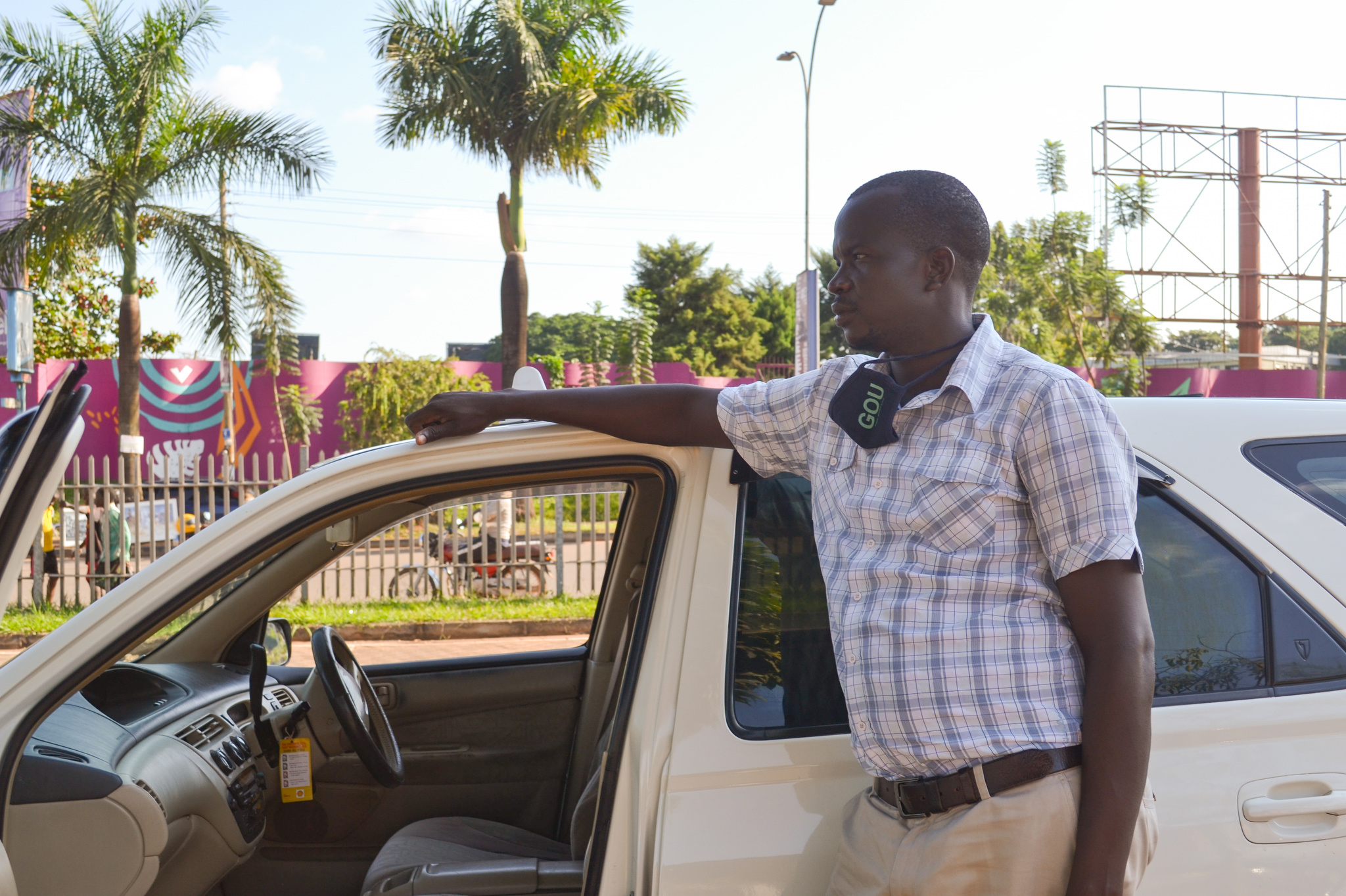
Apophia Agiresaasi, GPJ Uganda
Simon Peter Obilan, who participated in Uganda’s 2021 elections, waits for taxi customers. Obilan says he lost everything during the elections and is now a cab driver.
KAMPALA, UGANDA — When Simon Peter Obilan decided to run for the Kumi county parliamentary seat in eastern Uganda this year, he knew it would take more than his political skill to win. He needed money to entice his voters, so he borrowed from banks and individuals. One financial institution proffered him a loan with his home as collateral.
Obilan channeled 250 million Ugandan shillings (about $71,000) of this money toward building churches and offsetting bills such as school fees for his constituents. But his opponent had more money to woo voters. Obilan stood no chance. He lost not only the election but also his four-bedroom house.
Like Obilan, many in Uganda — voters and politicians alike — have resigned themselves to the transactional election process. Each election cycle, politicians splurge more to win over voters. Sometimes they rack up big debts.
Experts see this as a major threat to the country’s nascent democracy. The buying of votes not only increases corruption, they say, but also robs voters — who can no longer hold politicians accountable — of good representation.
During the 2016 elections, some legislators say they spent over 1 billion shillings ($283,000) on their campaigns, according to the Kampala-based nonprofit Alliance for Finance Monitoring. The same organization, which monitors election spending, also reports that during the 2021 pre-election campaigns, parliamentary aspirants spent nearly 500 billion shillings (about $142 million) in November and December 2020 alone. Most of the money went into administrative costs, followed by voter inducement activities such as purchasing groceries for voters and cash donations.
“The likely outcome will be governments that are created by the rich and serving the interests of the rich,” the report says.



The monetization of politics traces back to Uganda’s two decades of no-party democracy following controversial 1980s elections, which plunged the country into a civil war. President Yoweri Museveni limited party activities to curb civil strife. This meant that although political parties existed, they couldn’t support a candidate during the elections. Candidates could vie only on individual merit, including currying favor through cash and gifts.
Now, splurging on voters to win an election has become a necessity, says Busingye Harriet Mugenyi, member of Parliament for Hoima district in western Uganda. So deeply ingrained is the culture that during the 2021 general elections, which took place in January during the coronavirus pandemic, direct cash offered to vote was nicknamed “sanitizer.”
Busingye says voters aren’t interested in a candidate’s qualifications. What matters to them, she says, is the money they receive from candidates.
“Once you don’t provide social services like paying school fees for individuals or hospital bills, you are considered useless,” she says.

Wakayima Musoke Nsereko of the National Unity Platform, one of Uganda’s political parties, attributes this to poverty. The politician, who was elected twice to represent Nansana, a municipality in central Uganda, says that poor voters will desperately ask for financial assistance during elections.
But voters like Bomba Kigozi tell a different story. They say they have lost faith in politicians. That’s why the boda boda, or motorcycle taxi, driver in Kampala changed his mind during the 2021 general elections and voted for the candidate who gave him 20,000 shillings (about $6) — about what he makes in a day.
Jenina Mpanga, a registered voter in Mbarara district in western Uganda, also has a dim view of politicians. “Every time they want to debate and pass a bill, there is no quorum because they are busy running around trying to recoup monies they spent during elections.”
The transactional relationship between voters and politicians undermines voters’ ability to seek political accountability for delivery of public services, says Henry Muguzi, executive director of the Alliance for Finance Monitoring. He and many other independent analysts worry this dynamic will significantly increase the cost of future elections as politicians attempt to outdo one another and offer even more money to voters.
The government rejects such claims. Voter bribery in Uganda is illegal and a basis for challenging the results, says Paul Bukenya, media and public relations manager of Uganda’s Electoral Commission.
Politicians and activists propose a variety of solutions. Nsereko calls for civics education, although Bukenya says the Electoral Commission already provides voter education and engagement guidelines for candidates and political parties.
Sarah Bireete, executive director of the Center for Constitutional Governance, a Kampala-based nongovernmental organization, wants a law to limit how much politicians spend.
And some have lost hope. “We have power of the gun and power of money,” says John Katumba, a former presidential candidate in the 2021 election. “We have no democracy.”
Nakisanze Segawa is a Global Press Journal reporter based in Kampala, Uganda.
Apophia Agiresaasi is a Global Press Journal reporter based in Kampala, Uganda.
TRANSLATION NOTE
Nakisanze Segawa, GPJ, translated some interviews from Luganda.








